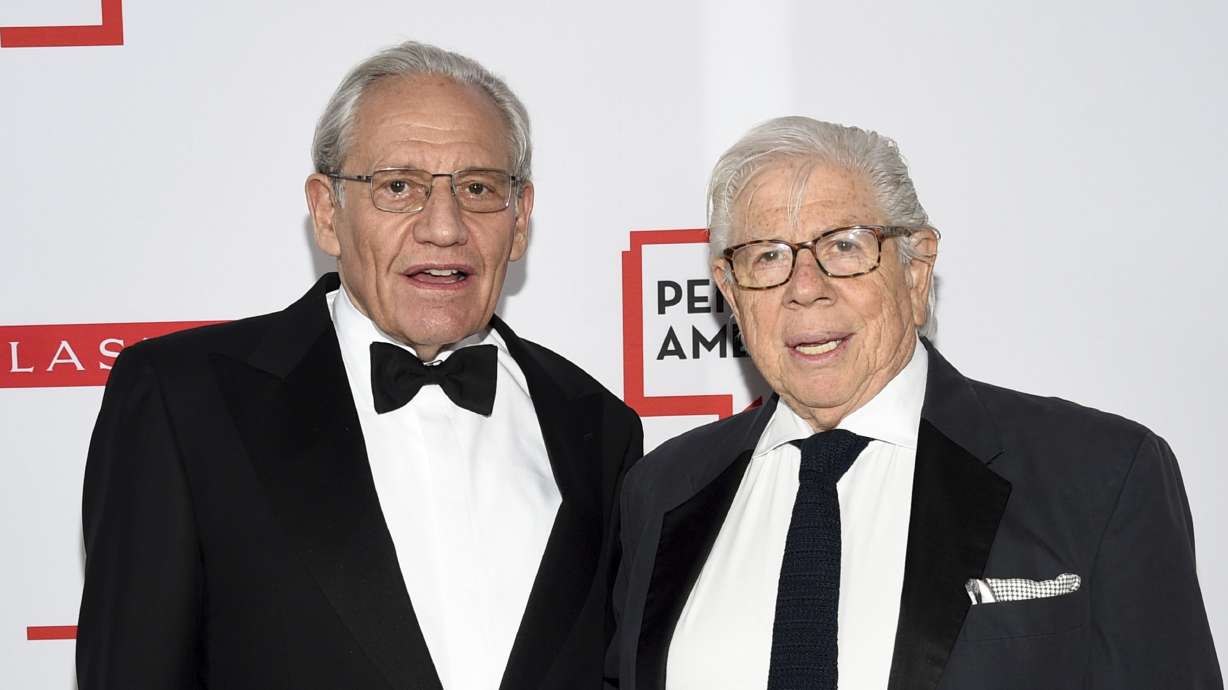Estimated read time: 3-4 minutes
This archived news story is available only for your personal, non-commercial use. Information in the story may be outdated or superseded by additional information. Reading or replaying the story in its archived form does not constitute a republication of the story.
WASHINGTON — "Always dig deeper."
That was the advice of then-Vice President Richard Nixon to members of the Society of Professional Journalists at its 50th anniversary convention in 1959.
Some delicious irony, right?
A transcript of the remarks was shared by incoming SPJ President Claire Regan as she welcomed journalism giants Bob Woodward and Carl Bernstein as keynote speakers at the society's convention in Washington, D.C., last week, a joint "MediaFest" with the Associated Collegiate Press and College Media Association.
"The reporters I have known in Washington, who get the big breaks and the best stories, don't rely on press releases and speeches. They go out and dig for the news," Regan read, over the rumble of appreciative laughter from Woodward, Bernstein and the capacity crowd in the Grand Hyatt ballroom.
"Good for you," Bernstein said. "We didn't know that."
SPJ had a scoop.
Woodward and Bernstein's call to journalists now mirrors that of the 1950s version of the man whose presidency was undone by the duo's reporting: Show up.
"We're not showing up enough," Woodward told the crowd, many of whom were up-and-coming journalism students. As an example, he detailed how in some of his later reporting, a firm no from a source — an "uncooperative" four-star general — slowly became a yes after Woodward persisted in trying to speak to the man, right up to the point of showing up on his front porch late on a Tuesday evening.
It was just one of the anecdotes shared by the reporters about finding the people who really understand what's going on, connecting with them and continuing to seek answers.
It's easy these days not to show up — and during the height of the pandemic, in many ways it wasn't really safe or possible to show up in person. But even before the threat of a health crisis was thrown into the mix, it was easier to text than to call, to email instead of getting an interview, to take the press release and never take the story any further.
But I'd say the advice from Woodward and Bernstein extends beyond reporting the news. What about reading it? Are we showing up?
The news has become ever more digestible and flavored to match our preferences, reduced to headlines and one-liners that can't tell the whole story. Are we reading? Watching? Are we consuming news from more than one outlet to get a more complete picture of what's going on? Or in our scrolling are we getting our news from a meme and then moving on? Are we looking before we link?
If we hope to keep all of those cogs in the democratic process working, we must all continue to show up.
–McKenzie Romero, Deseret News
We all know how Nixon's story ends, of course.
During their keynote conversation, Woodward read from a transcript of the former president speaking with his aides in the Oval Office in December 1972, following his re-election in the midst of the Washington Post's Watergate reporting. The tone was a world away from his encouragement to SPJ just over a decade earlier.
"He says to his top aides, 'Remember, we're going to be around and outlive our enemies. And also never forget, the press is the enemy. The press is the enemy. The press is the enemy. The establishment is the enemy. The professors are the enemy. The professors are the enemy. Write that on a blackboard 100 times and never forget it,'" Woodward read.
That hostility is easily seen in politics today, 50 years later, not even hidden on secret recordings but broadcast to ravenous audiences.
And after all this time, why is the Watergate story still so noteworthy?
"Because we had a criminal president of the United States, because the system worked, the criminal president of the United States had to resign. Because all of the institutions of American democracy worked. The press, the legislative branch, the executive branch, even the Justice Department, and the Supreme Court of the United States," Bernstein said.
If we hope to keep all of those cogs in the democratic process working, we must all continue to show up.










